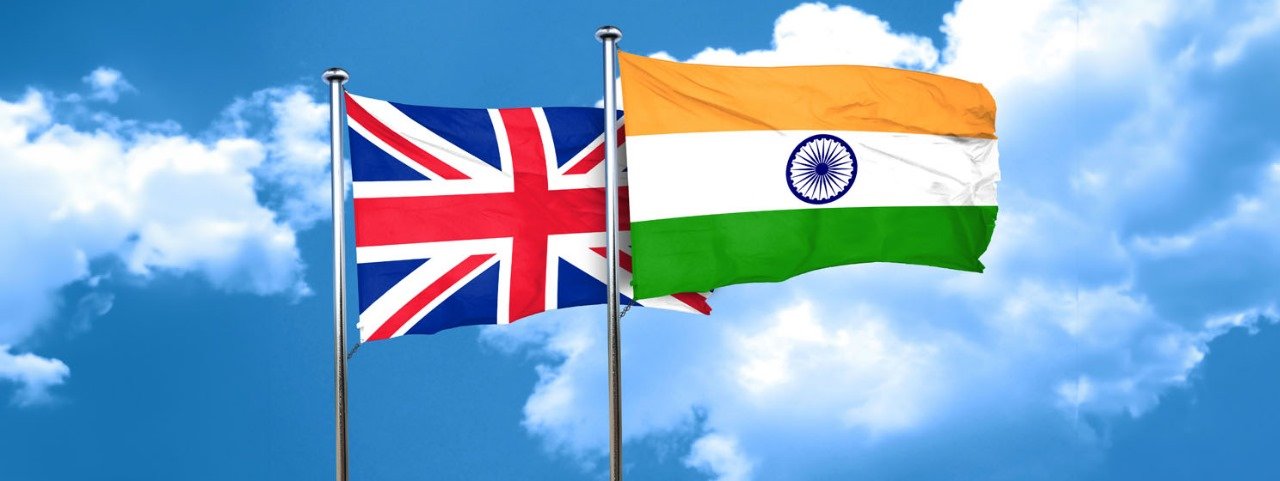From exploitation to equality – New economic era begins between former colony and colonial power
By Sanjay Kumar
In a powerful twist of history, India and the United Kingdom have signed the Comprehensive Economic and Trade Agreement (CETA)—popularly known as the Free Trade Agreement (FTA)—marking a transformative milestone in bilateral relations. The colonial power that once drained India’s economic wealth during the British Raj is now partnering with its former colony on equal economic terms.
No longer part of the European Union, Britain is navigating its post-Brexit future and seeking economic rejuvenation. In India, it has found not only a massive market of 1.4 billion people but also a fast-growing economy with global ambition. This agreement marks a shift from colonial legacy to commercial parity.
A Deal Amid a Changing Global Order
The timing of the deal is equally significant. Global trade dynamics have been shaken by former U.S. President Donald Trump’s return to the White House and his aggressive push for bilateral renegotiations, challenging the long-standing liberal free trade regime championed by the World Trade Organization (WTO). Washington’s pivot toward protectionism has left many allies scrambling to forge new alignments—and India-UK’s FTA stands as a strategic example.
In this turbulent landscape, the India-UK agreement is a refreshing reaffirmation of open trade. It not only removes barriers to commerce but also unlocks new opportunities for producers and consumers in both countries.
The FTA is expected to double bilateral trade to over $112 billion by 2030, reinforcing the fact that this is not a transactional arrangement but a visionary partnership between equals.
A Two-Way Street of Opportunities
Indian goods will now enjoy duty-free access to one of the world’s most advanced economies. Products like textiles, leather goods, marine products, gems and jewellery, and engineering goods will reach British consumers at competitive prices. In turn, this exposure will boost Indian industries, promote global competitiveness, and expand India’s footprint in international trade.
Britain, on the other hand, gains entry into the Indian market—one of the world’s largest and most aspirational middle-class consumer bases. From British cars to Scotch whisky, UK brands will find new life in Indian homes, while Indian producers will be pushed to innovate and match global quality.
Not Just Trade—But a Route to Peace
No trade agreement is without domestic challenges. Market disruptions, competition, and resistance from local stakeholders are part of the process. However, the broader ben fits often outweigh the short-term adjustments. As history has shown, economic interdependence encourages peace.
A more economically engaged South Asia, led by India’s outward-looking trade posture, can foster stability in a region often marred by political and security volatility. This trade deal might inspire neighboring nations to prioritize economic prosperity over strategic adventurism.
A Broader Message to the West
India’s FTA with the UK sends a broader message to the global West—the era of economic dominance without accountability is over. The victims of colonialism no longer seek revenge, but respect, parity, and fair partnerships.
With an EU-India FTA in the pipeline and growing pressure on the U.S. to moderate its protectionist stance, the West is being compelled to reimagine its engagement with the Global South. India, standing tall, is demanding a seat at the table—not as a subordinate, but as a sovereign equal.
Conclusion
The India-UK FTA is not just a trade pact. It is a historic realignment, a moment when the past is not erased but redefined. From exploitation to cooperation, from hierarchy to equality—this deal is a bold step into a future where both nations grow, not at the expense of one another, but in partnership.
The arc of history, it seems, has bent toward balance.
Author’s Bio: – Sanjay Kumar is a New Delhi based senior journalist who has been covering International Affairs and South Asia for over two decades.




